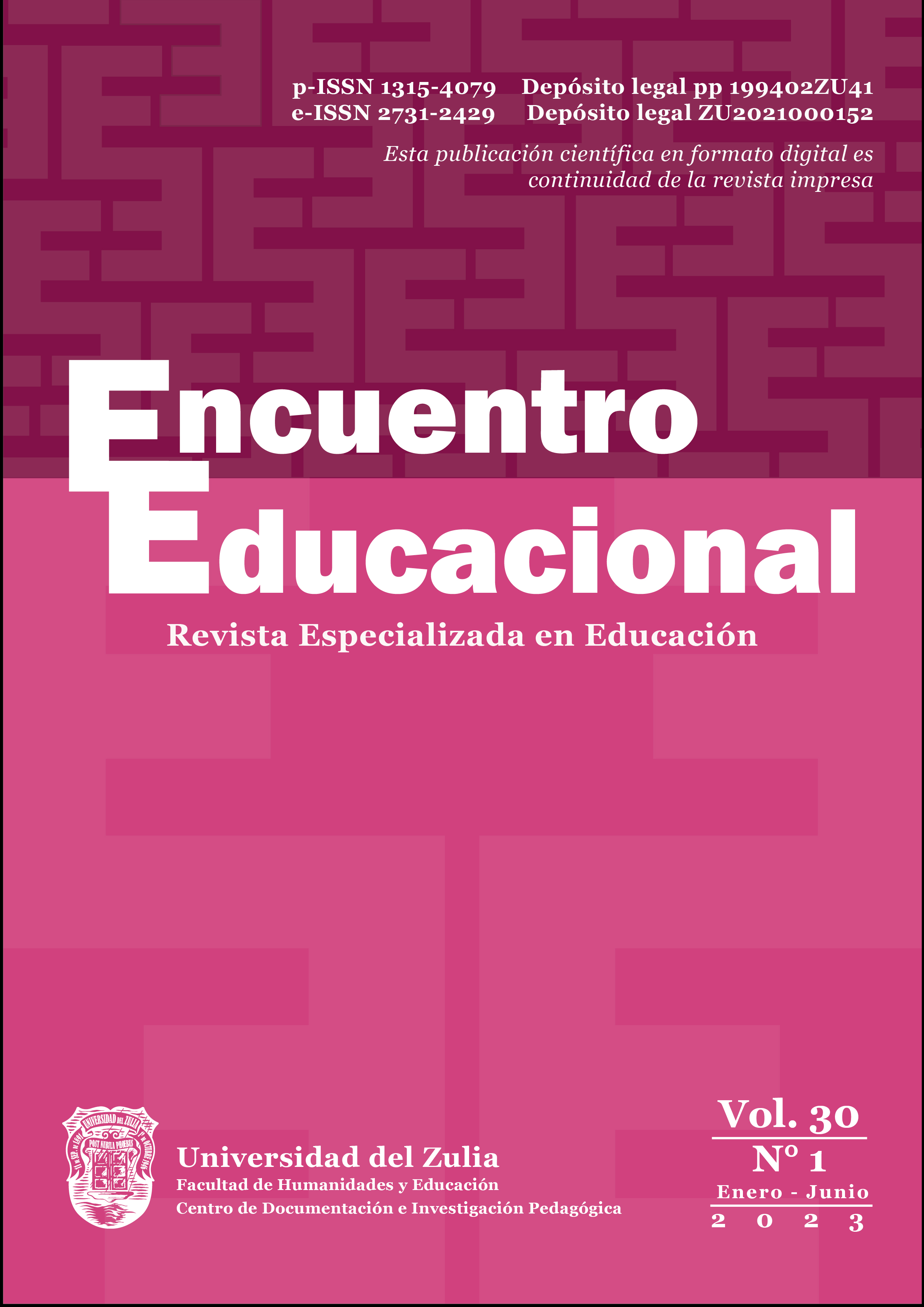Filosofía, investigación y educación: Relaciones e implicaciones en el contexto actual
Philosophy, research and education: Relations and implications in the current context
Abstract
This essay aims to analyze the interactions and implications between philosophy, research and education in current scenarios. To achieve this end, attention is focused on the following aspects: 1. Summarizes the central problem of Western philosophy, whose emergence was linked to the astonishment and questioning of natural phenomena that, over the centuries, was welcoming and leaving aside aspects of a diverse nature, but having in common that, in each historical stage, it has promoted its link with various branches of knowledge. 2. It broadly outlines the dimensions of philosophical research, which includes the questioning of philosophy itself, of science, and the emergence of critical positions towards research focused on a single meaning and scheme of thought. 3. It presents the relationship between philosophy, research and education, where philosophy is assumed as a required tool to enhance the rational capacities of the human being, as a means of permanent questioning for science, a fact that prevents the homogenization of knowledge and education in uncritical positions. The hermeneutic-documentary method was used. Conclusions are that, although philosophy and education have taken different directions, they share a concern for otherness, the social and the critical formation of citizens, elements required to guarantee human dignity in the 21st century.
Downloads
References
Aristóteles. (2014). Metafísica. Editorial Gredos, Madrid.
Bunge, Mario. (2013). La ciencia, su método y su filosofía. Editorial Laetoli, España.
Camacho, Luis y Morales, Hernán. (2020). Filosofía de la Educación y pedagogía de la enseñanza en la formación del profesorado. Estudio de caso, percepción del estudiantado. Revista Educación. Vol. 44, N° 1, pp. 1-30. Disponible en: https://www.redalyc.org/ journal/440/44060092006/html/. Recuperado el 18 de enero de 2023.
Cisneros, José. (2022). El método filosófico y la relación en cuanto relación como noción metafísica absoluta. Thémata. Revista de Filosofía. N° 66, pp. 53-74. Disponible en: DOI: 10.12795/themata.2022.i66.03. Recuperado el 07 de febrero de 2023.
Collado, Javier; Bustamante, Mónica y Moreno, Juan. (2022). Filosofía y educación en América Latina. Revista Cuadernos de Filosofía Latinoamericana. Vol. 43, N° 126, pp. 1-19. Disponible en: https://doi.org/10.15332/25005375.7598. Recuperado el 05 de febrero de 2023.
Descartes, René. (2020). Meditaciones metafísicas. Editorial Verbum, España.
Díez, Francisco. (2021). Editorial. Métodos y metodologías en la investigación filosófica. Escritos. Revista Científica. Vol. 29, N° 62, pp. 1-5. Disponible en: http://doi.org/ 10.18566/escr.v29n62.a00. Recuperado el 17 de febrero de 2023.
Gadamer, Hans-Georg. (2007). Verdad y método. Editorial Sígueme, Salamanca.
Gama, Luis. (2021). El método hermenéutico de Hans-Georg Gadamer. Escritos. Revista Científica. Vol. 29, N° 62, pp. 17-32. Disponible en: http://dx.doi.org/10.18566/ escr.v29n62.a02. Recuperado el 01 de febrero de 2023.
García, Félix. (2007). La investigación filosófica, la investigación sobre la filosofía. Revista Episteme. Vol. 27, N° 1, pp. 41-58. Disponible en: https://ve.scielo.org/scielo.php? script=sci_arttext&pid=S0798-43242007000100003. Recuperado el 11 de enero de 2023.
Hegel, George. (2004). Lecciones sobre la filosofía de la historia universal. Editorial Alianza, Madrid.
Heidegger, Martin. (2011). Tiempo y ser. Editorial Tecnos, Madrid.
Kant, Immanuel. (2007). Crítica de la razón pura. Losada, Buenos Aires.
Morales, Gonzalo; Reza, Lilian; Galindo, Santiago y Rizzo, Pedro. (2019). ¿Qué significa “fundamentos filosóficos” de un modelo educativo de calidad? Revista Ciencia Unemi. Vol. 12, N° 31, pp. 116-127. Disponible en: https://www.redalyc.org/journal/5826/ 582661248012/html/#:~:text=Los%20fundamentos%20filos%C3%B3ficos%20de%20un,%2C%20valores%2C%20conceptos%20y%20contextos. Recuperado el 20 de enero de 2023.
Muñoz, Ángel. (2002). Para investigar en filosofía: ¿Methodologia or Methodiologia? Revista de Filosofía. Vol. 19, N° 42, pp. 69-74. Disponible en: https://produccioncientificaluz.org./ index.php/filosofia/article/view/18964. Recuperado el 08 de enero de 2023.
Rodríguez, Sandra. (2021). Filosofía e investigación educativa. Revista Papiros Digitales. Vol. 1, N° 1, pp. 54-63. Disponible en: https://revistas.fundauney.org/index.php/papiros-digitales/article/view/28. Recuperado el 17 de febrero de 2023.
Villalobos, José; Márceles, Víctor y Ayala, Teresa. (2014). Epistemología y ciencia: la hermenéutica filosófica como crítica al método de investigación científica. Revista REDHECS. Edición 16, Año 9, pp. 105-120. Disponible en: http://ojs.urbe.edu/index. php/redhecs/article/view/525/452. Recuperado el 07 de febrero de 2023.


















